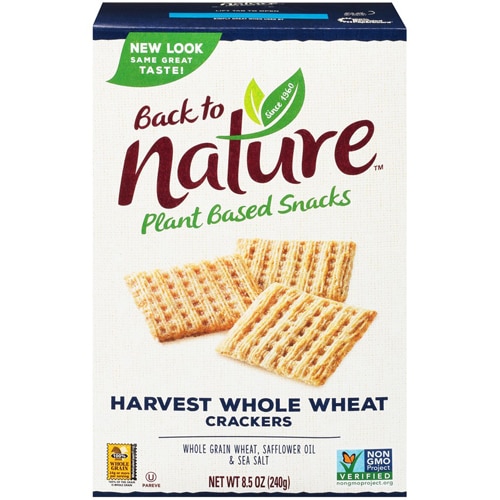Planning a plant-based menu for your children can be a lot of fun no matter the occasion! But it’s important to offer them a variety of options to ensure their nutritional needs are met—especially when it comes to picky eaters. Luckily, with some practice, you can quickly become a pro at creating delicious, well-balanced meals for at home and on the go.

A well-rounded meal or snack includes a combination of plant-based proteins, calcium-rich ingredients, vegetables, whole grains and fruits. All of these food groups provide unique benefits, with each playing a specific role in your child’s health.
Sources of plant-based protein
Beans, peas, nuts, nut butters, seeds and soy products serve as building blocks for bones, muscles, skin, hormones and vitamins. In addition, these foods supply B vitamins, iron, calcium and zinc.
Typical serving: 1/2 cup of cooked beans, peas or tofu.
Calcium-rich foods
These ingredients are essential for developing and maintaining healthy bones. Fortified soy milk and other plant-based milks and yogurts all support bone health.
Typical serving: 1 cup of plant-based milk.
Fruits & Vegetables for kids
Fruits provide vitamins, minerals and antioxidants. They’re also a great, healthy way to sweeten up a meal.
Typical serving: 1 piece raw, 1/2 cup cooked, 1/4 cup dried.
Vegetables offer a variety of nutrients, fiber and phytonutrients and can lower the risk of chronic diseases later in life.
Typical serving: 1/2 cup cooked or 1 cup raw.
Whole grains consist of foods such as brown rice, pasta, quinoa, oatmeal, cereal, tortillas, bread and popcorn. They’re full of fiber, iron, zinc and a plethora of other nutrients.
Typical serving: 1 slice of bread or tortilla, 5 whole wheat crackers, 1/2 cup cooked oatmeal, pasta, rice, quinoa or 3 cups popcorn.
How many foods from each of these groups should I aim for?
Toddlers/preschoolers (ages 2-4)
To excite your toddler about plant-based foods, involve him or her by giving them a task during the cooking process. Teach them how to rip lettuce leaves, rinse off canned beans in a strainer or mix a salad. To make their meals more exciting, cut foods into fun shapes and include a variety of colors to attract their attention.
An average breakdown for toddlers and preschoolers is around: 1/4 – 1/2 cup plant-based protein, 1/2 - 1 cup vegetables, 3/4 - 1-1/2 cups fruit, 4 servings of grains and 3 servings of calcium-rich plant-based milks.
School-aged children (ages 5-12)
When it comes to packing plant-based lunches, choose options that are comfortable to eat in front of other children. Plant-friendly options such as veggie deli slices or veggie corn dogs, nut butter sandwiches and pasta dishes are great picks.
An average breakdown for school-aged children is around: 1-2 servings plant proteins, 2-3 servings fruit, 2-3 cups vegetables, 6-7 servings grains and 3 servings calcium-rich plant-based milks.
Teenagers (ages 13-18)
Guide your teen toward balanced eating by working with them to brainstorm breakfast, lunch, dinner and snacks. This group is always on the go, so having simple and healthy snacks on hand is essential. Pre-packaged hummus and veggie snacks, fruit and nut bars and premade seed butter sandwiches are all excellent options to stock the pantry and fridge.
An average breakdown for teenagers is around: 3 servings legumes, 4 servings fruit, 4-5 servings vegetables, 10 servings grains and 2-3 servings calcium-rich plant-based milks.
Remember, with any plant-based diet you’ll also want to include either food sources or supplements of vitamin B-12, vitamin D and essential fatty acids. To create a plan crafted specifically for your child’s unique needs, working with a registered dietitian is a must.



